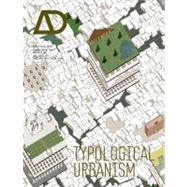
Note: Supplemental materials are not guaranteed with Rental or Used book purchases.
Purchase Benefits
What is included with this book?
Christopher CM Lee and Sam Jacoby are the co-directors of the new postgraduate Projective Cities Programme at the Architectural Association (AA) School of Architecture in London(projectivecities.aaschool.ac.uk), which is dedicated to a research- and design-based analysis of the emergent and contemporary city. They have taught together at the AA since 2002 and their investigation of the city, undertaken in Diploma Unit 6 from 2004 to 2009, has been published in Typological Formations: Renewable Building Types and the City (AA Publications, 2007). The work has also been widely exhibited, including at the 10th Architecture Biennale in Venice (2006) and as a solo exhibition at the UTS Gallery in Sydney (2009).
Christopher CM Lee is the co-founder and principal of Serie Architects. He graduated with an AA Diploma (Hons), has previously taught Histories and Theories Studies at the AA (2009-10) and was Unit Master of Intermediate Unit 2 from 2002 to 2004- and Diploma Unit 6 from 2004 to 2009. He is pursuing his doctoral research at the Berlage Institute in Rotterdam on the topic of the dominant type and the city.
The relationship between architecture and the city is a problem that has informed Sam Jacoby's teaching in collaboration with Christopher Lee and his professional work. Jacoby is also the co-director of the Spring Semester Programme at the AA where he also previously taught History and Theories Studies. He was also a studio leader in the BArch programme at the University of Nottingham. He is currently completing a doctoral degree at the Technical University of Berlin on the topic of ‘Type and the Syntax of the City'.
In this issue of 2 on Typological Urbanism, Lee and Jacoby recognise the city as a contemporary field, an area of study, and a design and research agenda, bringing together the work and research of contemporary professionals and academics that speculates on the potential of architectural experimentation and the meaningful production of new ideas for the city.
6. About the Guest-Editors (Christopher CM Lee ad Sam Jacoby).
8. Spotlight: Visual highlights of the issue.
14. Introduction: Typological Urbanism and the Idea of the City (Christopher CM Lee and Sam Jacoby).
24. The City as Project: Types, Typical Objects and Typologies (Marina Lathouri).
32. City as Political Form: Four Archetypes of Urban Transformation (Pier Vittorio Aureli).
38. Type, Field, Culture, Praxis (Peter Carl).
46. Brasilia’s Superquadra: Prototypical Design and the Project of the City (Martino Tattara).
56. Type? What Type? Further Reflections on the Extended Threshold (Michael Hensel).
66. Typological Instruments: Connecting Architecture and Urbanism (Caroline Bos & Ben van Berkel/UNStudio).
78. Penang Tropical City, Penang, Malaysia OMA (João Bravo da Costa).
90. Singapore Buona Vista Masterplan Competition, Singapore (Toyo Ito & Associates, Architects).
94. 21st Century Museum of Contemporary Art, Kanazawa, Ishikawa Prefecture, Japan (Kazuyo Sejima + Ryue Nishizawa/SANAA).
102. The Metropolis as Integral Substance l’AUC Architects and Urbanists (François Decoster, Caroline Poulin, Djamel Klouche).
110. A Simple Heart: Architecture on the Ruins of the Post-Fordist City DOGMA (Pier Vittorio Aureli and Martino Tattara).
120. Xi’an Horticultural Masterplan, Xi’an, China (Serie Architects).
128. Counterpoint: Transcending Type: Designing for Urban Complexity (David Grahame Shane).
The New copy of this book will include any supplemental materials advertised. Please check the title of the book to determine if it should include any access cards, study guides, lab manuals, CDs, etc.
The Used, Rental and eBook copies of this book are not guaranteed to include any supplemental materials. Typically, only the book itself is included. This is true even if the title states it includes any access cards, study guides, lab manuals, CDs, etc.